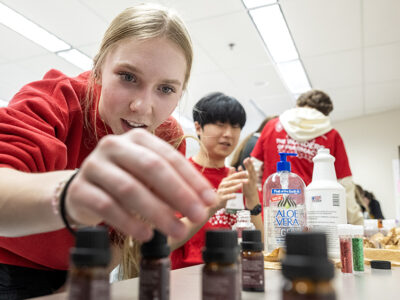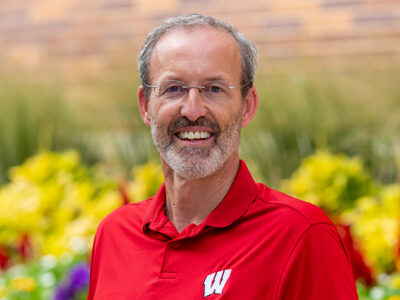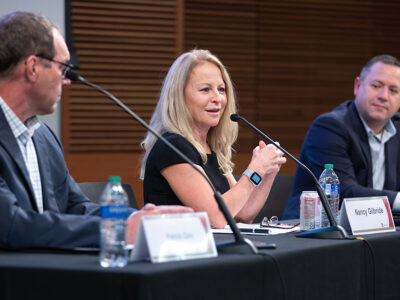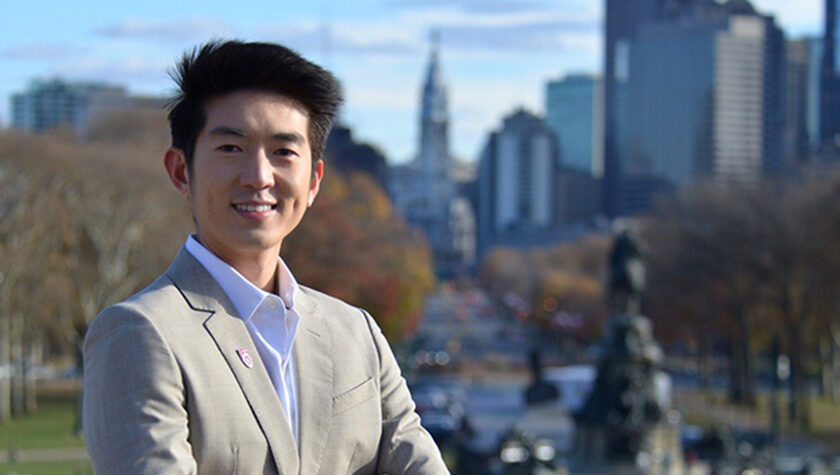
3
December

Alum Rattavut Teerakapibal uses his passion and wealth of technical knowledge for formulation and process development to improve HIV therapies
By Stuti Bhardwaj
Chronic diseases account for $3.8 trillion in annual health care spending in the United States. Patients’ lives are interrupted with recurring medical attention and burden. Human Immunodeficiency Virus/Acquired Immunodeficiency Syndrome (HIV/AIDS) is one such chronic disease that requires lifelong treatment. Globally, more than 1 million people are diagnosed each year with HIV. As recently as 1996, the average life expectancy of a patient with HIV was less than 40 years. But with advances in treatment, if diagnosed early, HIV-positive patients today can have the same life expectancy as their HIV-negative counterparts.
Rattavut Teerakapibal (PhD ’18), a graduate of the University of Wisconsin–Madison School of Pharmacy, is one of the many researchers worldwide who are working to improve HIV therapies. As an investigator at GlaxoSmithKline (GSK), he supports the company’s ViiV Healthcare portfolio on HIV treatments and prevention.
“HIV is a very difficult disease to treat because it’s become so integral to the patient’s body,” he says. “There’s no cure — just prevention and treatment — so it’s a very challenging but exciting therapeutic area to work on.”
“I can create medicines that can be shipped and prescribed anywhere, globally, so I think it has a large outreach and great impact to healthcare.”
—Rattavut Teerakapibal
The present standard of care for HIV requires the patient to take an oral dosage form every day, creating a huge patient burden and introducing room for error or missed doses. Earlier this year, GSK received approval for an HIV treatment, “CABENUVA,” that is one injection every month. Teerakapibal is now developing the next generation ultra long-acting treatments with prolonged dosing intervals.
“In Thailand, where I’m from, we have a large population of people living with HIV,” he says. “This work is very personal to me and to my country but will also have a global impact.”
Although he’s now working on formulation and process development for groundbreaking treatments, Teerakapibal’s career started on the other side of the same coin: reverse-engineering products for generic brands.
Aiming for a global reach
Teerakapibal has always been passionate about treating and preventing diseases, and he wanted to make a broader impact on patient health, which is what led him to pursue research and the Pharmaceutical Sciences PhD program at the School of Pharmacy.
“I can create medicines that can be shipped and prescribed anywhere, globally, so I think it has a large outreach and great impact to healthcare,” he says, “I knew I needed to undergo a rigorous graduate training program in order to build my scientific expertise, the needed skill sets, and become an innovator of new medicines.”
At the School of Pharmacy, he joined the drug delivery lab of Pharmaceutical Sciences Professor Lian Yu, who studies the molecular structures of pharmaceutical materials with an aim toward designing low-cost drug formulations with better stability and efficacy. In the Yu Lab, Teerakapibal worked to engineer the physical structure of active pharmaceutical ingredients to optimize compound’s bioavailability.
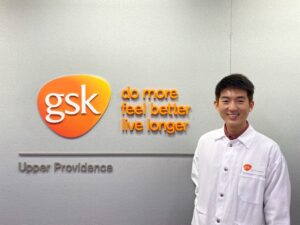
“Many compounds these days are experiencing problems with solubility, so after you ingest it, most of it just gets excreted,” he explains. By improving solubility, more of the active pharmaceutical ingredients would be absorbed for enhanced bioavailability and increased therapeutic effectiveness.
In addition to a string of publications in journals like Pharmaceutical Research and AAPS PharmSciTech, which are official journals of the American Association of Pharmaceutical Scientists (AAPS), his research also earned Teerakapibal four awards: the AAPS Graduate Student Research Award in Physical Pharmacy and Biopharmaceutics, the AAPS travelship, the American Association of Indian Pharmaceutical Scientists Graduate Student Research Award, and the Pharmaceutics Graduate Student Research Meeting Pre-formulation and Manufacturing Award.
“Professor Yu is a very strong advocate for understanding the fundamental science behind everything,” says Teerakapibal. And that solid foundation has given him a springboard to explore new areas of pharmaceutical science.
Reverse-engineering generics
“While working toward my PhD, I was mainly working on drug substances,” he says, which gave him a thorough understanding of active pharmaceutical ingredients (APIs) — their chemical, material, and physical properties, and the techniques to characterize them.
“I wanted to get more involved in formulation and actually making dosage forms,” he says, so he joined Mylan Pharmaceuticals in West Virginia.
At Mylan, which is one of the largest manufacturers of generic drugs and HIV/AIDS therapies, he was a formulation scientist, combining APIs with excipients — inactive ingredients that support drug delivery or stability — to make oral solid dosage forms, mainly tablets and capsules.
Because the target drugs were based on name-brand medications that already underwent clinical trials and approval from the Food and Drug Administration and other regulatory bodies, Teerakapibal would have to work backward from the approved molecule to reformulate it, scale up production, technology transfer, and support registration.
“We are working on some of the most challenging diseases and making progress on the next generation of medicines.”
—Rattavut Teerakapibal
During his three years at Mylan, he received several approvals for many new generic drugs to treat a variety of conditions.
“It was a really broad scope of work and I learned so much about the pharmaceutical industry,” he says. “But there is much more unmet medical need that requires attention.”
Joining an innovator company
In summer 2021, Teerakapibal moved on to his current job as an investigator at GlaxoSmithKline, a brand company based near Philadelphia.
Instead of working backward from the blueprint of an approved drug, he now gets to blaze his own trails, working on pre-candidate therapeutics and drugs that are working their way through clinical trials. When the drug discovery team finds a compound that shows promise against a target, it goes to Teerakapibal’s team to be developed.
“My role here is to come up with the best formulation that is manufacturable at a larger scale. I don’t already have the answers or the recipe in front of me,” says Teerakapibal. “I don’t know how much to dose exactly or if my drug will work — it may not work.”
But he finds the challenge and the search for answers to be an exhilarating part of the job. Another learning curve comes with is transition from oral solid dosage forms to injectables, which is a better formulation for long-acting HIV therapies.
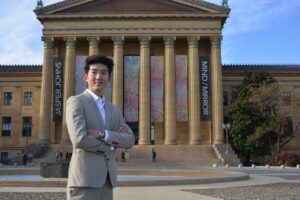
“With injectables, the quality target product profile is going to be different, excipients and manufacturing processes are now different, and there are higher criteria to be sterile,” he says. “Injectable drugs must have no bioburden.”
With the formulation determined — in collaboration with other Chemistry, Manufacturing and Controls teams — Teerakapibal and his group make a supply of the drug product for pre-clinical and clinical trials, and then gather pharmacy data to submit for registration with health authorities or regulatory agencies in different countries.
“In school, you are completely focused on independent research,” he says. “But in industry, you’re accountable for your role as a formulator, but must rely on the capability and expertise of your collaborators in other departments to ensure successful delivery as a team.”
As compared with his work in formulating generic drugs, the breadth of work may be narrower, but it’s much more exploratory.
“I am doing a lot of fundamental research on the mechanistic understanding of how different excipients affect our drug product,” he explains.
“This work is very personal to me and to my country but will also have a global impact.”
—Rattavut Teerakapibal
Although he hasn’t published any of his work from GSK so far, he’s looking forward to the opportunity to contribute to the shared body of knowledge through peer-reviewed journals, like he did as a graduate student.
“I miss the exploratory science that I did at the School and joining an innovator company like GSK is like a hybrid opportunity between industry and academia,” he says. “We are working on some of the most challenging diseases and making progress on the next generation of medicines.”
His contributions and impact on patients have already been realized at GSK with a Global Employee Recognition Award on Patient Focus.
“I am ambitious for patients by inventing new medicines and promoting quality in everything we do,” he says.





